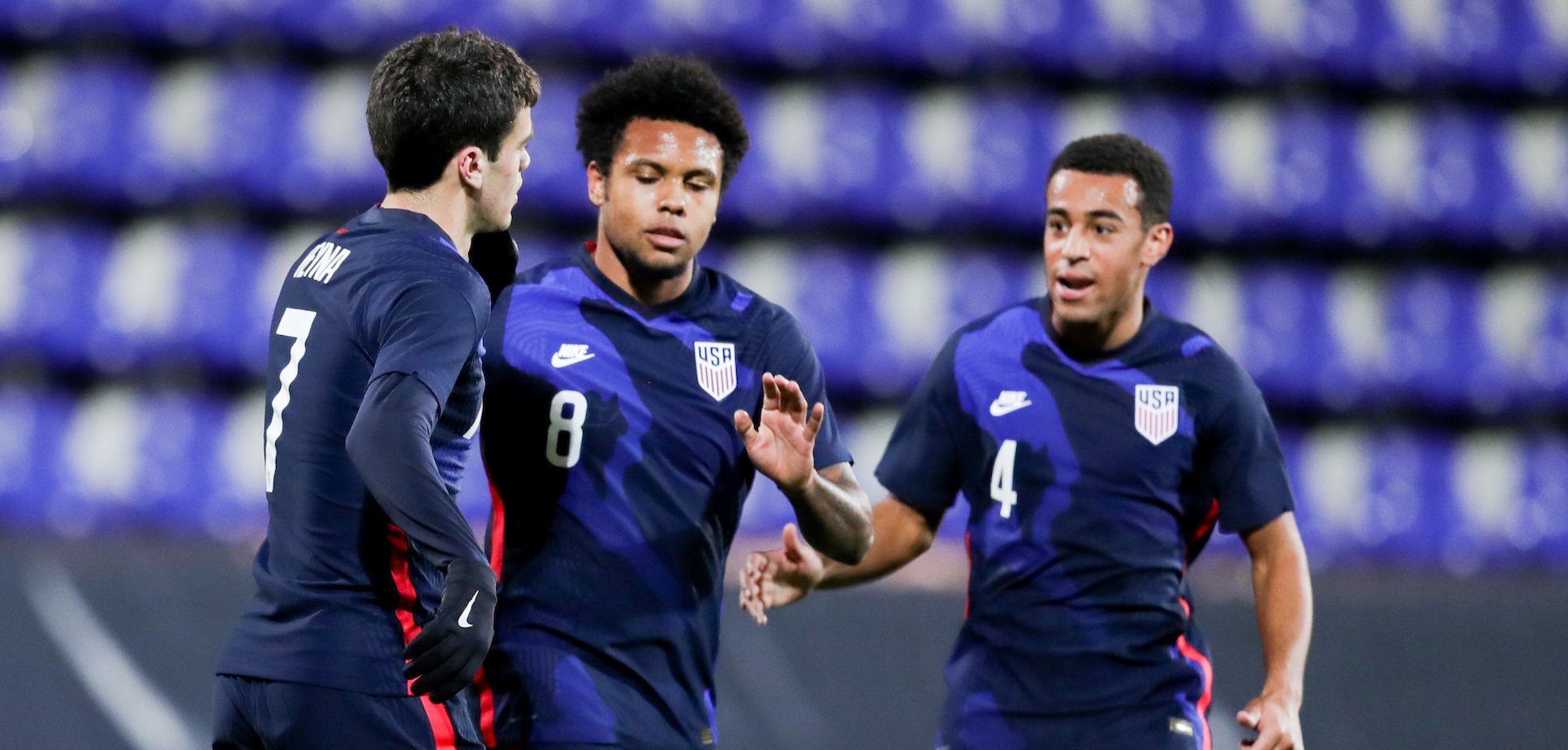
Following the sting of relinquishing the Concacaf Gold Cup crown to arch-rivals Mexico, the United States Men`s National Team (USMNT) finds itself at a pivotal juncture. The title of `Kings of Concacaf` may temporarily reside elsewhere, but the focus has swiftly shifted from regional bragging rights to global ambition. With the 2026 World Cup looming on home soil, every international break transforms from a mere collection of friendly fixtures into a critical proving ground. This particular window, featuring challenging encounters against South Korea and Japan, presents an invaluable opportunity for Head Coach Mauricio Pochettino to scrutinize, strategize, and sculpt a squad capable of making a profound statement.
Pochettino`s Grand Experiment: Balancing Ambition with Pragmatism
Mauricio Pochettino, a coach renowned for his tactical acumen and development of young talent, stands at the helm of an intriguing challenge. The objective isn`t merely to win these friendlies – though victory is always the preferred outcome – but to rigorously test an “experimental squad.” This entails evaluating depth, assessing emerging players, and fine-tuning tactical systems under the pressure of top-tier international competition. It’s a delicate dance: introduce fresh faces and bold ideas, yet avoid a repeat of past stumbles against formidable opponents.
The USMNT`s recent record under Pochettino includes defeats to Mexico, Panama (twice), Canada, Turkiye, and Switzerland. While these are part of a developmental process, they undoubtedly cast a shadow over the team`s consistency. A strong showing now isn`t just about morale; it’s about providing tangible evidence that the team is progressing, that the strategic gambles are paying off, and that the players can rise to the occasion. The path to 2026 isn`t paved with good intentions alone; it demands robust performances.
A Reunion, A Rival, and A Global Star: Son Heung-Min`s Return to Pochettino`s Orbit
One of the most compelling narratives surrounding the South Korea match is the reunion between Pochettino and his former Tottenham Hotspur protégé, Son Heung-Min. Pochettino’s admiration for Son is palpable, stemming from a relationship forged over years. “He was a very important player, one of the most important players during my period in Tottenham,” Pochettino reflected, recalling his persistent pursuit of the South Korean captain even before their Tottenham days. This sentiment highlights the personal connection, but on the pitch, Son represents a different challenge altogether.
Son Heung-Min, often lauded as one of the best players in the world, leads a South Korean side ranked 23rd in the FIFA standings. His familiarity with Major League Soccer venues, coupled with his blistering pace and clinical finishing, poses a significant threat. For the USMNT`s defense, this isn`t just a friendly; it`s a live-fire exercise against a genuine global superstar. How they contain him will be a litmus test for the team`s defensive organization and individual prowess, offering invaluable lessons far beyond the final score.
The Unseen Value of International Friendlies: Beyond the Scoreline
For casual observers, international friendlies can sometimes feel like a diluted version of competitive football. However, for a developing national team like the USMNT, these matches against highly-ranked nations (South Korea at 23rd, Japan at 17th) are crucial. They provide a benchmark against diverse playing styles and expose players to pressures they might not regularly encounter in their club environments. It’s an opportunity to:
- Test Tactical Flexibility: Can the team adapt mid-game? Do different formations and player combinations yield desired results?
- Evaluate Player Depth: Who truly shines when given a chance? Who can step up when key starters are unavailable?
- Build Team Chemistry: With players converging from various leagues, these windows are vital for fostering cohesion and understanding on the pitch.
- Measure Mental Fortitude: Can the team maintain composure and execute under the scrutiny of an international stage, especially when facing adversity?
These are the moments where raw talent meets strategic execution, where potential is either realized or identified as needing further refinement. It`s a pragmatic, rather than purely idealistic, approach to national team development.
Player Pool Deep Dive: Pulisic`s Return and Emerging Talent
The return of key figures like Christian Pulisic, alongside talents such as Sergino Dest and Josh Sargent, injects experience and quality into the squad. Pulisic, in particular, will be keen to reassert his influence and demonstrate the kind of decisive play that has made him a vital asset. Yet, the spotlight also falls on the numerous players who may be less familiar to the casual fan – those on the cusp, fighting for a place in Pochettino’s long-term vision. Names like Noahkai Banks, Max Arfsten, Luca De La Torre, and Diego Luna represent the future, and their performances in these high-stakes friendlies could significantly impact their trajectory towards the 2026 roster. It`s a trial by fire, but also an unparalleled platform.
The Road to 2026: Every Step Counts
The prediction of a 1-1 draw against South Korea, while seemingly unspectacular, underscores the current state of the USMNT – a team with undeniable talent but still grappling with consistency. Mauricio Pochettino`s task is unenviable: to blend youth with experience, to instil a winning mentality, and to forge a cohesive unit capable of challenging the world`s best. These friendlies are not mere exhibition matches; they are strategic maneuvers in a larger campaign leading to a World Cup on home soil, an event that demands nothing less than the USMNT`s most compelling performance to date. The journey is long, but these international breaks provide the critical stepping stones.









